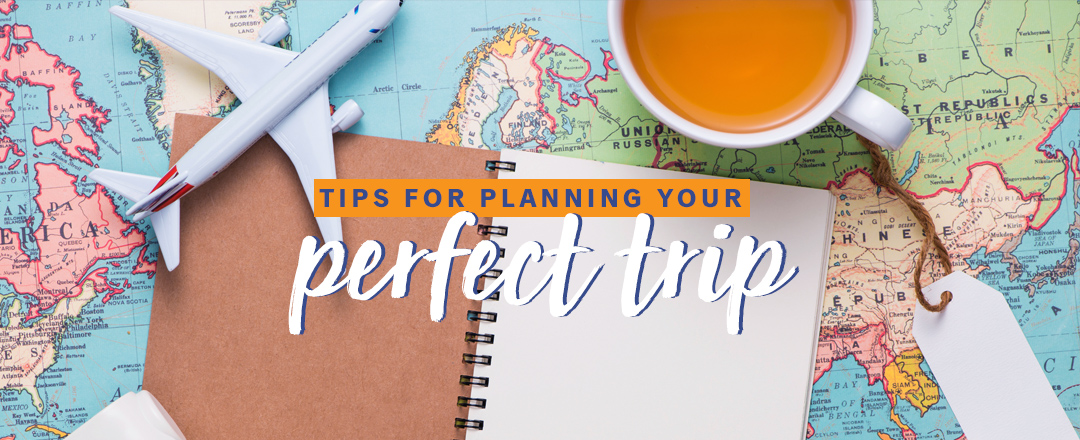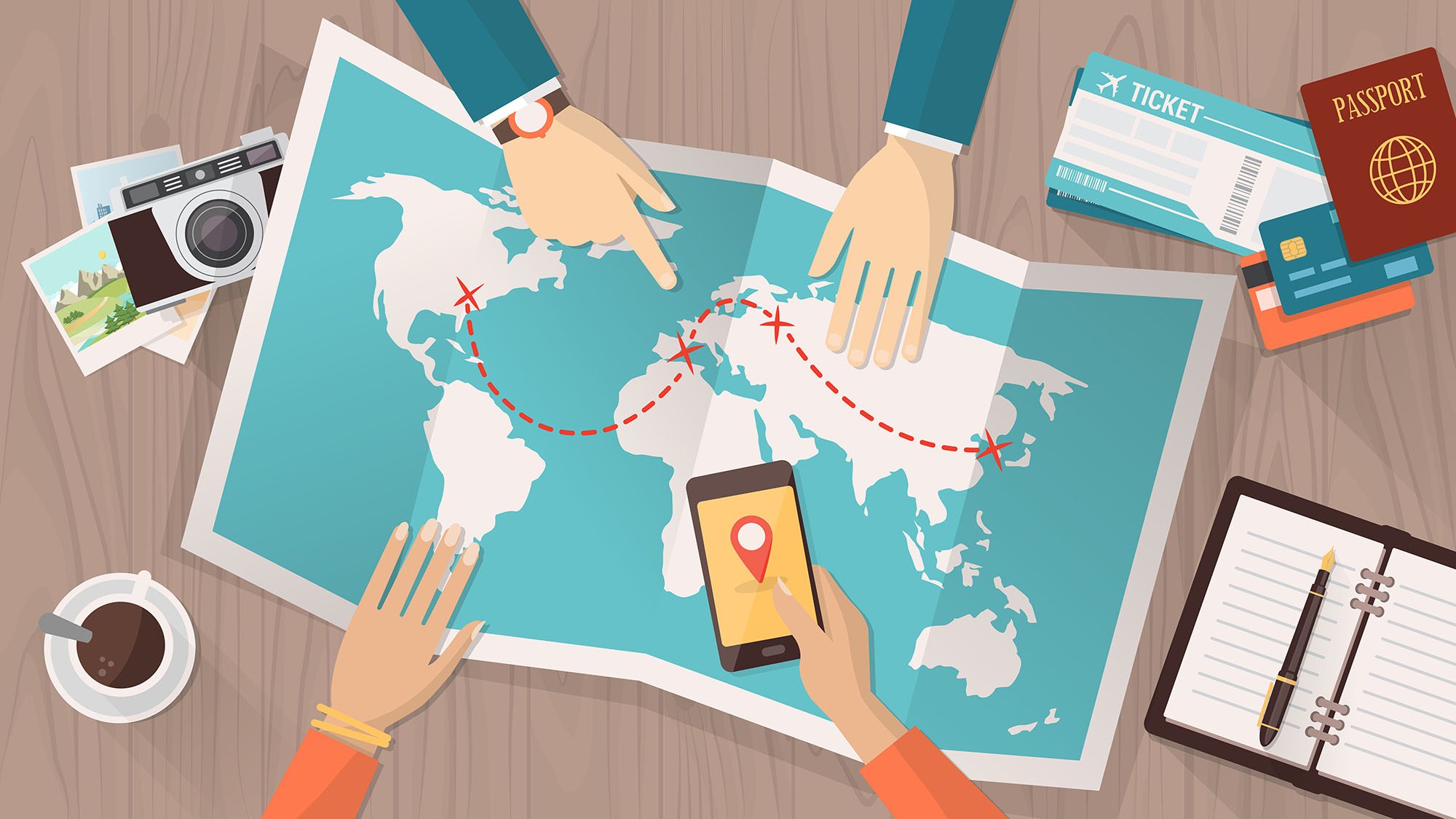The Art of Planning: A Comprehensive Guide to Crafting the Perfect Trip
Related Articles: The Art of Planning: A Comprehensive Guide to Crafting the Perfect Trip
Introduction
With enthusiasm, let’s navigate through the intriguing topic related to The Art of Planning: A Comprehensive Guide to Crafting the Perfect Trip. Let’s weave interesting information and offer fresh perspectives to the readers.
Table of Content
The Art of Planning: A Comprehensive Guide to Crafting the Perfect Trip

In the realm of travel, meticulous planning is the cornerstone of a successful and enjoyable journey. The process of crafting a trip, from conceptualization to execution, involves a myriad of considerations, ranging from destination selection to itinerary management. This comprehensive guide aims to shed light on the art of trip planning, providing a framework to navigate the complexities of creating a memorable travel experience.
Understanding the Importance of Trip Planning
Trip planning transcends mere logistical organization; it is an exercise in crafting a personalized narrative, a bespoke adventure tailored to individual preferences and aspirations. The benefits of meticulous planning are multifaceted:
-
Minimizing Stress and Maximizing Enjoyment: By proactively addressing potential challenges and ensuring smooth transitions, trip planning fosters a sense of control and reduces the likelihood of unforeseen inconveniences. This, in turn, allows travelers to fully immerse themselves in the experience, embracing the joy of exploration without the burden of last-minute anxieties.
-
Optimizing Time and Resources: A well-structured itinerary ensures that every moment of the trip is maximized. Travelers can prioritize activities that align with their interests, allocate time efficiently, and avoid the disappointment of missed opportunities.
-
Budgetary Control and Financial Savvy: Planning allows for a thorough assessment of travel costs, enabling travelers to make informed decisions regarding accommodation, transportation, and activities. This proactive approach facilitates responsible spending and prevents unnecessary financial strain.
-
Enhanced Safety and Security: Researching destinations, understanding local customs, and preparing for potential emergencies empowers travelers to navigate unfamiliar environments with greater confidence. Trip planning fosters awareness and equips travelers with the knowledge necessary to safeguard their well-being.
The Pillars of Effective Trip Planning
The process of crafting a successful trip can be broken down into distinct stages, each contributing to the overall success of the journey:
1. Defining Your Travel Goals and Preferences:
-
Destination Selection: The first step involves identifying the ideal location. This decision is influenced by personal interests, travel style, and budget. Consider factors such as:
- Cultural Immersion: Seeking historical sites, vibrant city life, or traditional experiences.
- Natural Wonders: Exploring scenic landscapes, engaging in outdoor activities, or immersing oneself in nature.
- Relaxation and Rejuvenation: Seeking tranquil beaches, serene resorts, or opportunities for wellness and pampering.
-
Travel Style: Defining your preferred travel style is crucial. Consider factors such as:
- Independent Exploration: Embracing freedom and spontaneity, navigating independently and discovering hidden gems.
- Guided Tours: Seeking structure and expert insights, participating in organized excursions and group activities.
- Luxury Travel: Prioritizing comfort and indulgence, indulging in high-end accommodations, dining, and experiences.
-
Budget: Establishing a realistic budget is essential to avoid overspending and ensure a financially responsible journey. Consider:
- Accommodation: From budget-friendly hostels to luxurious hotels, choose options that align with your budget.
- Transportation: Flights, trains, car rentals, and local transportation costs should be factored into the budget.
- Activities: Allocate funds for sightseeing, cultural experiences, entertainment, and dining.
2. Researching and Gathering Information:
-
Destination Research: Thorough research is paramount to understanding the destination, its culture, and its nuances. Explore:
- Local Customs and Etiquette: Familiarize yourself with cultural norms and customs to avoid any unintentional faux pas.
- Visa Requirements: Ensure you have the necessary documentation for travel, including visas if applicable.
- Currency Exchange: Understand the local currency and exchange rates to manage your finances effectively.
- Safety and Security: Research local safety guidelines and potential risks to make informed decisions and stay safe.
-
Itinerary Planning: Construct a detailed itinerary that encompasses:
- Accommodation: Book accommodations in advance, especially during peak seasons, to secure desired options.
- Transportation: Plan flight bookings, train schedules, or car rentals to ensure smooth transitions between destinations.
- Activities and Attractions: Research and schedule visits to museums, historical sites, natural wonders, or other attractions that align with your interests.
- Dining and Entertainment: Identify local restaurants, bars, and entertainment options to enhance your cultural immersion.
3. Booking and Confirmation:
- Flights: Book flights well in advance, especially for international travel, to secure favorable fares and avoid potential cancellations.
- Accommodation: Reserve accommodations, whether hotels, guesthouses, or vacation rentals, to guarantee availability and secure desired options.
- Transportation: Confirm train tickets, car rentals, or other transportation arrangements to ensure smooth travel within your destination.
- Activities and Tours: Book tours or excursions in advance, especially for popular attractions, to avoid disappointment and secure your spot.
4. Packing Strategically:
-
Essential Items: Pack clothing appropriate for the climate and activities you plan to engage in. Consider factors such as:
- Weather: Pack for various weather conditions to ensure comfort and preparedness.
- Activities: Pack clothing and footwear suitable for hiking, sightseeing, or other planned activities.
- Formal Events: Pack appropriate attire if you plan to attend any formal events.
-
Essentials and Documents: Include:
- Passport and Visa: Ensure these documents are valid and readily available.
- Travel Insurance: Obtain travel insurance to protect yourself against unexpected events.
- Travel Itinerary: Keep a copy of your itinerary for reference and in case of emergencies.
- Currency and Credit Cards: Carry a mix of local currency and credit cards for convenience and security.
5. Pre-Trip Preparation:
- Health and Safety: Consult your doctor for necessary vaccinations and travel health advice. Pack a basic first-aid kit for emergencies.
- Communication: Ensure your mobile phone plan includes international calling or data roaming. Consider purchasing a local SIM card for more affordable communication.
- Language: Learn a few basic phrases in the local language to enhance your communication and cultural immersion.
- Emergency Contacts: Keep a list of emergency contacts, including your embassy or consulate in the destination country.
FAQs on Trip Planning
1. How far in advance should I start planning my trip?
The ideal timeframe for trip planning varies based on the complexity of the journey and individual preferences. For international travel, it is recommended to start planning at least six months in advance to secure favorable flights and accommodations. Domestic trips can be planned with less lead time, but it is advisable to book flights and accommodations at least a few months in advance, especially during peak seasons.
2. What are the best resources for trip planning?
Numerous resources can assist travelers in their planning endeavors. Some valuable options include:
- Travel Websites: Websites like Kayak, Expedia, Skyscanner, and Booking.com offer comprehensive search engines for flights, accommodations, and activities.
- Travel Blogs: Blogs written by experienced travelers provide insightful tips, destination guides, and personal anecdotes.
- Travel Forums: Online forums allow travelers to connect with others, exchange advice, and seek recommendations.
- Destination-Specific Websites: Websites dedicated to specific destinations offer detailed information on attractions, events, and local experiences.
3. How can I save money on my trip?
Budgeting and cost-saving strategies play a crucial role in responsible travel. Consider:
- Off-Season Travel: Traveling during the shoulder seasons (spring and fall) often offers lower prices on flights and accommodations.
- Budget-Friendly Accommodations: Explore hostels, guesthouses, or vacation rentals as alternatives to traditional hotels.
- Public Transportation: Utilize public transportation systems to save on transportation costs.
- Free Activities: Seek out free attractions, such as parks, museums with free entry days, or walking tours.
- Meal Planning: Prepare some meals yourself to reduce dining costs.
4. How do I stay safe while traveling?
Safety is paramount during travel. Implement these measures:
- Research Local Safety Guidelines: Familiarize yourself with local safety recommendations and potential risks.
- Keep Valuables Secure: Use secure accommodations, keep valuables in a safe, and avoid displaying excessive wealth.
- Be Aware of Surroundings: Stay vigilant and aware of your surroundings, especially in crowded areas.
- Avoid Unnecessary Risks: Exercise caution and avoid walking alone at night or in unfamiliar areas.
- Register with Your Embassy: Register your travel plans with your embassy or consulate for assistance in case of emergencies.
Tips for Successful Trip Planning
- Be Flexible: Embrace flexibility in your itinerary to accommodate unexpected events or spontaneous opportunities.
- Pack Light: Pack only essential items to avoid excess baggage fees and unnecessary weight.
- Learn Basic Phrases: Learning a few basic phrases in the local language can enhance your interactions and cultural immersion.
- Stay Hydrated: Drink plenty of water, especially in hot climates, to avoid dehydration.
- Respect Local Culture: Be mindful of local customs and traditions to avoid any unintentional faux pas.
- Document Your Journey: Capture your memories through photographs, videos, or journaling to preserve your travel experiences.
Conclusion
Crafting a successful trip is an art form that requires meticulous planning, a keen sense of adventure, and a willingness to embrace the unknown. By following these guidelines, travelers can navigate the complexities of trip planning, ensuring a seamless and enriching experience. Remember, the journey itself is as important as the destination. Embrace the process, embrace the unexpected, and create a travel narrative that will be cherished for years to come.








Closure
Thus, we hope this article has provided valuable insights into The Art of Planning: A Comprehensive Guide to Crafting the Perfect Trip. We thank you for taking the time to read this article. See you in our next article!